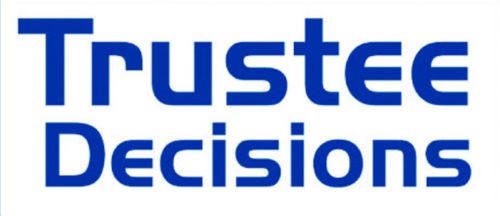Sponsored Content
Good pension scheme governance is a robust, process-oriented decision-making framework, writes James Kavanagh (pictured), Managing Director of Trustee Decisions
The IORPs II Directive aims to introduce an effective system of governance around fitness and probity, written policies on risk management, internal controls, administrative and accountancy procedures, contingency plans and communications.
Trustees should note that this prudential supervision will mean a forward-looking and risk-based approach, and the Pensions Authority as Regulator will have greater interventionist powers. Trustees need to get their aims and objectives as well as terms of reference in order, and understand the difference between basic governance and good pension scheme governance.
Trustees of occupational pension schemes have common law fiduciary obligations with reference to the Trust Deeds that govern their schemes. This means:
• Protecting the rights of beneficial members
• Knowing your responsibilities as a trustee
• Ensuring pro-active monitoring of all agents.
Transparency is key when documenting and disclosing all matters relating to a pension scheme. Pension scheme governance refers to the system of decision-making and oversight used by trustees to invest pension assets and generally achieve desired retirement outcomes for scheme members.
Good pension scheme governance is a robust, process-oriented decision-making framework, which in times of crisis protects the welfare of stakeholders and withstands extreme stress tests.
It does not just refer to trustees being compliant with the pensions regulator and pensions legislation – it means problem-solving and having effective internal and external controls. It also involves excelling to high-standard formal mechanisms by which trustees make decisions, are held accountable to beneficiaries, and act in accordance with the highest public and private standards.
Being a trustee of a pension scheme is a significant responsibility, which requires expertise and industry-wide experience. Trustees are often faced with challenging decisions as they attempt to balance the interests of sponsoring employers and beneficiaries while running their scheme in an ever-changing legislative environment.
Trustees are responsible for ensuring that their scheme is adequately funded for investing vast sums of money. It is vital that they are cognisant of regulatory requirements and investment markets while understanding how to balance risk with expected returns. Trustees need to mandate their advisors with clear, unambiguous objectives and ensure they operate unhindered by any conflict of interest.
For more information on Trustee Decisions, go to www.trusteedecisions.com









